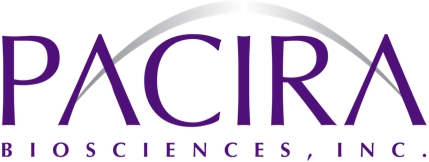Two New Studies Support Use of EXPAREL via Infiltration Into the Transversus Abdominis Plane for Postsurgical Pain Control
Data Presented at Annual Meetings of Leading Regional Anesthesia Societies Demonstrate Analgesia for Up to 72 Hours and High Patient Satisfaction
The first study, presented at the 2013 Annual Meeting of the
Key findings include:
- Patients’ pain was well-controlled through 72 hours (mean pain score was <3 out of 10 through 120 hours after surgery, where 10 represents the worst possible pain)
- Most patients reported being “satisfied” or “extremely satisfied” with pain control at discharge and postsurgical day 10 (mean score of 4.4 at discharge and 4.6 at postsurgical follow-up visit on a scale of 0-5, where 5 represents the highest possible satisfaction)
- No serious adverse events were reported in the study
“The consistent results we observed from this study support the safety
and clinical value of EXPAREL. The prolonged pain relief and improved
patient satisfaction we observed using EXPAREL in TAP infiltration after
large and generally painful umbilical hernia repairs was unprecedented,”
said
The second study, a retrospective review of 20 patients undergoing
hand-assisted nephrectomies and colorectal procedures and receiving an
iTAP with EXPAREL for postsurgical pain control, was discussed during a
poster presentation held on
Key findings include:
- Patients experienced minimal pain through 72 hours (mean pain score at rest of 2.3 or lower through 72 hours)
- Patients reported numbness at their incision site lasting between 48 to 72 hours postsurgically
- There were no treatment-related adverse events in the study
“Infiltration into the transversus abdominis plane using traditional
local anesthetics is a highly-effective technique to produce regional
pain control during surgery, but the postsurgical benefits rarely extend
beyond 18 hours,” said
EXPAREL is indicated for single-dose administration into the surgical site to produce postsurgical analgesia. Since EXPAREL is used in a peri- or postsurgical setting in the same fashion as current local anesthetics, it has broad applications across a wide variety of surgical specialties ranging from general and colorectal surgery to bariatric and plastic surgery procedures.
About Pacira
About EXPAREL®
EXPAREL (bupivacaine liposome injectable suspension) is indicated for single-dose infiltration into the surgical site to produce postsurgical analgesia. The product combines bupivacaine with DepoFoam, a proven product delivery technology that delivers medication over a desired time period. EXPAREL represents the first and only multivesicular liposome local anesthetic that can be utilized in the peri- or postsurgical setting in the same fashion as current local anesthetics. By utilizing the DepoFoam platform, a single dose of EXPAREL delivers bupivacaine over time, providing analgesia with reduced opioid requirements for up to 72 hours. Pivotal studies have demonstrated the safety and efficacy of EXPAREL in patients undergoing bunionectomy or hemorrhoidectomy procedures and additional studies are underway to further demonstrate the safety and efficacy in other procedures. Additional information is available at www.EXPAREL.com.
Important Safety Information
EXPAREL is contraindicated in obstetrical paracervical block anesthesia. EXPAREL has not been studied for use in patients younger than 18 years of age. Non-bupivacaine-based local anesthetics, including lidocaine, may cause an immediate release of bupivacaine from EXPAREL if administered together locally. The administration of EXPAREL may follow the administration of lidocaine after a delay of 20 minutes or more. Other formulations of bupivacaine should not be administered within 96 hours following administration of EXPAREL. Monitoring of cardiovascular and neurological status, as well as vital signs should be performed during and after injection of EXPAREL as with other local anesthetic products. Because amide-type local anesthetics, such as bupivacaine, are metabolized by the liver, EXPAREL should be used cautiously in patients with hepatic disease. Patients with severe hepatic disease, because of their inability to metabolize local anesthetics normally, are at a greater risk of developing toxic plasma concentrations. In clinical trials, the most common adverse reactions (incidence greater-than or equal to 10%) following EXPAREL administration were nausea, constipation, and vomiting.
Please see the full Prescribing Information for more details available at http://www.exparel.com/pdf/EXPAREL_Prescribing_Information.pdf.
Source:
Pacira Pharmaceuticals, Inc.
James S. Scibetta, 973-254-3570
or
Media
Contact:
Pure Communications, Inc.
Susan Heins, 864-286-9597
sjheins@purecommunicationsinc.com

